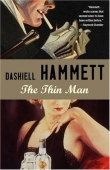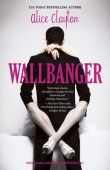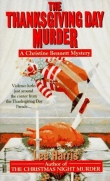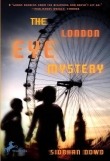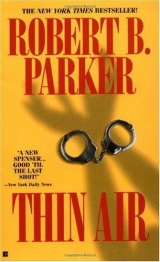
Текст книги "Thin Air"
Автор книги: Robert B. Parker
Жанр:
Крутой детектив
сообщить о нарушении
Текущая страница: 3 (всего у книги 14 страниц)
Chapter 5
I was in my office. Outside my window it was a bright hard spring day, not very warm, but no wind and a lot of sunshine. There were spring clothes in the shops along Newbury Street, and somebody had put a few tables outside some of the cafes. It was still too brisk for anyone to sit outside, but it was a harbinger, and it made me feel good. Breakfast was over and I was planning lunch when Quirk called.
"Belson got shot last night," he said. "I'll pick you up outside your office in two minutes."
"He alive?" I said.
"Half," Quirk said and hung up.
I was outside wearing my authentic replica A-2 leather jacket with the collar up when an unmarked black Ford with a buggy whip antenna swung into the curb. Quirk was in the back, and a Homicide dick named Malone was driving. I got in the back with Quirk, and Malone pulled away from the curb, hit the siren, ran a red light and headed down Boylston Street.
"Belson was coming home last night, around eight o'clock, and while he was unlocking his front door somebody pumped three nine-millimeter slugs into him from behind," Quirk said. "One broke the left scapula, one punched a hole in his right side and went on through. One is still there, right near his spine, down low."
"He going to make it," I said.
"Probably," Quirk said. "They don't know how soon he'll walk."
"Shooter didn't group his shots very tight," I said.
"We noticed that too," Quirk said. "On the other hand, he apparently hit all three shots he took. We haven't found any other slugs."
"So he's a pretty good shot," I said, "but maybe excited."
"Maybe."
Malone yanked the car dawn Arlington Street and turned left on St. James.
"He conscious?" I said.
"In and out," Quirk said. "But last time he was in, he said he wanted to see you."
With the siren full on we went through Copley Square, and out Huntington Avenue.
"What hospital?" I said.
"Brigham," Quirk said.
"Any suspects?"
"No."
We went out Huntington, turned down Francis and pulled in under the portico at the main hospital entrance, and parked. A fat black woman in a hospital security uniform came toward us as we got out, waving us away. Malone flashed his badge and she stopped and nodded and walked away.
Belson was in the intensive care unit, a sheet pulled up to the middle of his chest. There was an IV into a vein on the back of his right hand. His left arm was in a cast. Lee Farrell was there, with his hips on a windowsill. There was another Homicide cop I didn't know sitting in a chair by Belson's bedside with a tape recorder. The recorder wasn't picking anything up. Belson appeared to be sleeping. I nodded at Farrell.
The cop with the tape recorder said, "He's coked to the eyeballs, Lieutenant. He hasn't said a word."
Quirk nodded.
"Frank," he said. "Spenser's here."
Belson made no movement for maybe twenty seconds, then his eyes opened. He shifted his eyeballs slowly toward Quirk's voice and slowly past Quirk and looked at me. The cop beside the bed turned on the tape recorder.
"Talk… to… Spenser," he said slowly in a very soft voice. Everything he did was slow, as if the circuits weren't connected very well.
I moved a little closer to the bed and bent over.
"What do you need?" I said.
His eyes remained fixed for a moment at the spot where I had been, then slowly they moved and, even more slowly, they refocused on me.
"You… find… her," he said.
"Lisa," I said.
"Can't… look… now. You… look."
"Yeah," I said. "I'll find her."
Belson was silent for a while. His eyes were on me, but they didn't seem to be seeing me. Then he moved his lips carefully. For a moment no sound came.
Then he said, "Good."
Everyone was quiet in the room. Belson kept his blank eyes on me. Then he nodded faintly and let his eyes close and didn't move. The cop with the tape recorder turned it off.
In the corridor, Quirk said, "You chase the wife, we'll chase the shooter. They turn out to be connected, we'll cooperate in our common endeavor."
"He say anything I can use?"
"He hasn't said anything anybody can use. Even if he was lucid, I don't think he knows what hit him. He got it in the back and he never cleared his piece."
"A real pro," I said, "would have made sure it was finished."
"A real amateur wouldn't have hit all three shots," Quirk said. "Maybe something scared him off."
"If something did, be nice to find out what it was and talk to it."
"We're looking," Quirk said.
"Doctors give you any idea how long before he can talk more than he's doing now?"
"No. They've shot him full of hop right now, and they say he'll need it for a while."
"So I'm on my own," I said.
"Aren't you always?" Quirk said.
We walked slowly through the hospital corridors to the elevator.
"You want to look through Frank's house?" Quirk said.
He handed me a new key with a little tag hanging from it on a string. On the tag "Belson, FD" was written in blue ink.
"I suppose I got to," I said.
"Don't get delicate," Quirk said. "It's a case now."
Chapter 6
Belson and his bride had a condominium on Perkins Street in Jamaica Plain right next to Brookline. It was a good-looking collection of gray and white Cape Cod-style semihouses attached in angular ways and scattered in a seemingly random pattern like an actual neighborhood that had evolved naturally. Across the street and down a slope behind me was Jamaica Pond, gleaming in the late March afternoon as if it were still a place where Wampanoags gathered. Across the pond, cars went too fast along the Jamaica Way, and in the distance the downtown city rose clean and pleasant looking against a pale sky in the very early spring.
I could see the gouge where someone had dug out a slug from the door frame, about hip high. I opened the door and went in. I didn't like it much. It made me uncomfortable to nose around in the privacy of somebody I'd known for twenty years. I'd seen Belson at home once or twice with the first wife in an ugly frame house in Roslindale. I'd been in Belson's new living room once, after the wedding. But now I felt like an intruder. On the other hand, I had to start somewhere. I didn't know what Belson had done, looking for his wife. Had he listened to her messages? Checked her mail? Looked for missing clothing? Purse? I had to start from scratch.
I was in a small entryway. A breakfast nook was to my left. The living room was straight ahead. On my right was a stairway to the second floor, and under the stairs was a lavatory. The kitchen was between the breakfast nook and the living room. Nothing was very big. Everything was very new. There was a fireplace in one corner of the living room. There was a Sub Zero refrigerator in the kitchen, and a Jenn Air cook stove, a Kitchen Aid dishwasher, a trash compactor, a microwave, some terra-cotta tile, and a variety of nuts and grains in clear acrylic canisters, which appeared never to have been opened. It wasn't much different than a lot of condos I'd been in, where mass production cut the building costs and the builder spent money on accessories that made the owners feel with it.
Upstairs a huge draped four-poster filled up the bedroom. There was a Jacuzzi in the bathroom. The third room was small but served at least to acknowledge the possibility of a child or a guest. It had been converted to a study which obviously belonged to Lisa.
There was a picture of her and Frank framed on the wall. Short blonde hair, wide mouth, big eyes. She was quite striking, and even more so in person, because she had a good athletic body, and a lot of spring. Being a trained detective, I had taken note of the body at the wedding. Next to the picture was a framed award certificate announcing that Lisa St. Claire of WPOM-FM served with honor as chairman of the media division of the Proctor United Fund. Below the certificate, on the desk, was a Macintosh computer, a cordless phone setup, and an answering machine. The digital display said that there were four messages. I punched the All Messages button.
"Hey, St. Claire, it's your buddy Tiffany. I'll pick you up for class tonight about seven, give us time for coffee… Lisa, it's Dr. Wilson's office, confirming your appointment at two forty-five on Tuesday for cleaning… Lisa, how lovely to hear your voice. I hope soon to see you… Honey, I get off about seven tonight. I'll pick up some Chinese food on the way home. I love you."
The phone had a redial button. I punched it. At the other end a voice said, "Homicide." I hung up. Her last phone call had been to her husband. Probably wanted extra mu shu chicken and I love you too… or maybe just the mu shu.
Aside from Belson, nobody on the machine meant anything to me. If he were functional, I could have played the messages and asked him to identify the callers. But he wasn't. I listened to the messages again and made notes.
The first message was self-explanatory if I knew what class, and where and who Tiffany was, which I didn't. Tiffany called Lisa by her maiden name, if that meant anything. I wondered for a moment if "maiden name" was any longer acceptable. What would be the correct locution? Prenuptial name? Birth name? Nonspousal designation?
Unless it was a coded message, the second one was a dentist. The third message was a man who might, I couldn't tell for sure, have an accent. The fourth one was Belson. I looked around the study. There was a catalog from Merrimack State College. That would explain the class. I opened the desk drawer and found three Bic pens, medium black, some candy-striped paper clips, some rubber bands, an instruction manual for the answering machine, a battered wooden ruler, a letter opener, a roll of stamps, and bills from three credit card companies. I put the bills in my coat pocket. There was no phone book; it was probably in her purse. On her desk calendar pad at the top, associated with no specific date, the word Vaughn was written in several different decorative ways, as if someone had doodled it while talking on the phone. There wasn't anything else. I went into their bedroom and looked around. There was no sign of her purse. I opened a closet. It was hers. The scent of her cologne was strong. There was no purse in the closet. I opened the other closet. It was Belson's. I closed it. I looked at her bureau and shook my head. I declined to rummage further in the bedroom.
I took a tour of the downstairs, looking in closets and cupboards. There was no sign of a purse. If she hadn't taken her purse, it was a good bet she didn't leave on her own. It didn't mean she had left voluntarily. But it was hopeful. Or not. I wasn't exactly sure what I should be hoping for. If she had simply walked out on him without a word, that would be pretty awful. If someone had forced her to leave, that would be pretty awful. Probably better just to find her, and when I did then I'd know.
I took the calendar with me when I left the condo and walked back to my car. There was still snow in some shadowed areas, and ugly mounds of it compacted by salt and sand and pollution squatted where the plows had tossed it in the winter. But there was also bird song and the ground was spongy, and somewhere doubtless a goat-footed balloon man was whistling far and wee. I drove back to my office with the windows down.
He had her dressed in a Southern Belle costume today, like Scarlett O'Hara. He himself was wearing some sort of riverboat gambler getup with a black string tie and ruffled-front shirt. There was some salad and some French bread and a bottle of champagne on the table. He poured her some wine and handed it to her.
"I don't drink anymore, Luis."
"Not even a little champagne?"
"I'm an alcoholic, Luis. I can't drink."
"You drank when we were together before."
"I was relapsing," she said, "in more ways than one."
"What does that mean?"
"It just means I can't drink," she said.
"I could force you," he said.
"I know."
"But I won't."
"Thank you," she said, and hated saying it as soon as it was out.
"There will be more for me," he said.
He drank. She stood silently in her ridiculous dress, thinking that she could use a drink now and how it would help her courage and knowing she was lying to herself as she did it. I won't go back, she said to herself. I won't be that thing again. The monitors were playing the scenes of her captivity and their early romance. This time it played against a background of music by stringed instruments that sounded like the stuff you hear in elevators. What a jerk, she thought.
"Luis, my husband is a cop," she said. "Sooner or later he'll find me. "
"He will not find you," Luis said.
"He will, Luis, and when he does you will be in a shitload of trouble."
Luis seemed almost serene.
"He will not find you," he said.
Chapter 7
Proctor was inland, well north of Boston, near the New Hampshire border, at a bend in the Merrimack River, where a series of falls and rapids had supplied power to the nineteenth-century textile industry, which had created the city. Before the war the city had belonged to the Yankees who ran the mills, and the French-Canadian and Irish immigrants who worked them. The Yankees had never lived there. Most of the mill management lived in company-built suburbs outside of Proctor. Now the name of the city was the only hint of its Yankee beginnings. The mills had followed the labor market to the sunbelt after the war. The Yankees had shifted gears and, without having to leave their suburbs, had clustered south in homage to the new transistor culture, an easy commute along route 128. City Hall belonged now to the Irish, the Canucks had scattered, and the rest of the city was a porridge of South and Central American immigrants.
I drove into Proctor over a bridge from south of the city, where the dirty water of the Merrimack snarled over the rapids below and churned up a yellowish foam. The mills were still there. Red brick, chain link, imposing, permanent, and largely empty. There were discount clothing outlets in some, and cut-rate furniture stores in others.
Everywhere there was graffiti-ornate, curvilinear, colorful, and defiant, on brick, on city buses, on the plywood with which windows had been boarded, on mail boxes, on billboards, swirling over the many abandoned cars, most of them stripped, some of them burned out, that decayed at the curbside. There were only Latino faces on the streets. Some old men, mostly adolescent boys, clustered on street corners and in doorways, hostile and aimless. The signs on the store fronts were in Spanish. The billboards were Spanish. The only English I saw was a sign that said: "Elect Tim Harrington, Mayor of All the People." I wondered how hard Tim was working for the Hispanic vote.
East along the river the factories thinned out, and there were tenements, three-deckers with peeling paint and no yards. The tenements gave way to big square ugly frame houses, many with asbestos shingles and aluminum siding. WPOM was about a half mile out along the river, in a squat brick building with a chain-link fence around it, next to a muffler shop. There was a ten-story transmission antenna sticking up behind it, and a big sign out front that said it was the voice of the Merrimack Valley. The gate was open and I drove in and parked in the muddy lot to the right of the station. A receptionist buzzed me in. There was a security guard with a gun in the lobby. The station's programming was playing implacably on speakers in the reception area. It was a rock station, and the music was a noise I didn't know.
The receptionist was a young woman with sadistically teased blonde hair and lime-green sneakers. The rest of her outfit seemed to be a large black bag, which she was wearing like a dress. She had a gold nose ring, and six very small gold rings in her right ear. When I came to her desk she was working on her horoscope and chewing some gum. Both. I smiled at her, about half wattage. Full wattage usually made them rip off their clothes and I didn't want this one to do that. She put down the horoscope magazine and looked up at me and chewed her gum. Both, again. Maybe I'd underestimated her.
"My name is Spenser," I said. "I'd like to talk with the station manager."
"Concerning what?" she said. Her voice sounded like a fan belt slipping.
"I'm a detective," I said. "I'm looking for someone."
"Excuse me?"
"I'm a detective, a sleuth, an investigator."
I took out my wallet and showed her my license. She stared at it blankly. It could have said "Maiden Spoiler" on it for all the difference it made to her.
"Do you have an appointment?"
"Not yet," I said. "What is the manager's name?"
"Mister Antonelli."
"Could you tell Mister Antonelli I'm here, please."
She stared at me and chewed her gum. That was two things. I knew that calling Mister Antonelli on the intercom would be one thing too many. So I waited. I was hoping she'd get through staring in a while. Nothing happened. I pointed at the intercom and smiled encouragingly.
"What was your visit concerning?"
"Lisa St. Claire," I said.
"Lisa isn't in," she said.
"And I want to know why," I said.
"You'd have to ask Mr. Antonelli about that," she said. "I just work here."
"Okay," I said. "Give him a buzz."
She nodded and picked up the phone.
"A gentleman to see you, Mister Antonelli… No, I don't know… he didn't say. He's mad because Lisa isn't here… Yes Sir."
She hung up.
"Mister Antonelli will be out in a moment, sir."
"Thank you for your help."
The receptionist smiled like it was nothing and went back to her horoscope. I watched her while I waited for Antonelli. After a moment she stopped chewing her gum. Probably needed to concentrate.
A short, overweight guy came down the hall toward me, wearing a black-checked vest over a white shirt, which he'd buttoned to the neck. He had on black jeans and gray snakeskin cowboy boots, and he flashed a diamond ring on the little finger of his left hand that would have been worth more than the station if it were real. He was bobbing slightly to the rock music as he came toward me.
"You the one here about Lisa St. Claire?" he said.
"Yeah, Spenser, I'm a private detective."
"John Antonelli, I'm the station manager. What's the buzz on Lisa?"
"Can we go somewhere?"
"Oh yeah, sure, come on down to the office."
I followed him into the office-beige rug, ivory walls, walnut furniture, award plaques on the wall. I'd never been in a broadcaster's office that didn't have award plaques. If you were running a pro-slavery hot line, someone would probably give you an award plaque.
Antonelli sat in his swivel chair, and put one foot on an open desk drawer and tilted his chair back. Through the big window behind him I could see the full panorama of the transmission repair shop. The station on-air was grating through the speaker system into the office, though at less volume than in the lobby.
"So where's Lisa?" he said. "The other jocks have been splitting shifts to cover her. We're not a big station. We got a big audience, but we don't have a lot of stand-by people, you know?"
Antonelli smiled at me without meaning it. "Lean and mean," he said.
"Is there a way to shut the noise off?" I said.
"You don't dig that sound? That's Rat Free, man. Group of the Year."
"Gee, they finally beat out the Mills Brothers?"
Antonelli smiled again. It was like the light in a refrigerator. On. Off.
"Kids love Rat Free," he said. "They been platinum three years in a row."
"How nice for them," I said. "Could we lose them for a few minutes while we talk?"
Antonelli shrugged. He leaned forward and turned a dial on his desk and the music faded away.
"So what's the chatter?" he said.
"Lisa left home three days ago and her whereabouts Are unknown."
"She ditch the old man?"
"I don't know. Did she talk about that?"
"Lisa? No. Lisa was a very private person, you know. She never said much of anything about her personal life."
"Not even to you," I said. "So why do you think she might have ditched the old man?"
"That's what you usually think, isn't it, broad like Lisa? Real spunky, good looking, you seen her?"
"Yes."
"Girl like that, man. Most female jocks are kinda happy, you know what I mean, that's why they're in radio. But Lisa, with those looks, man she's television Stuff. I'll tell you right now, you heard it here, baby, She'll be on TV inside a year."
"Wow!" I said. "You know anything about where She worked before?"
"Not off the top, but I guess I got her resume somewhere, she must have given me one when she applied for the job."
"That'd be good," I said.
He waited. I waited.
"You want it right now?" he said.
"Yeah."
"Might take a little while."
"I've got a little while."
"Oh sure, okay."
He picked up the phone and dialed three digits.
"Vickie? John. Yeah, could you get Lisa St. Claire's file out and bring it down to my office. Soon as you can. Thanks, doll."
While he was calling I thought how too bad it was that fashion dictated the button-up collar. His neck fleshed out over it and he looked uncomfortable, even if he wasn't. He hung up and gave me a little nod. His hair was smoothed back tight to his skull and glistened with the stuff he used to smooth it.
"She friendly with the rest of the station crew?" I said.
"She wasn't unfriendly," Antonelli said. "But they don't mingle that much. Everybody has their shift. They pass each other in the hallway, you know. Sometimes they get friendly with an engineer, or something, but Lisa wasn't much of a mixer. Tell you the truth, I think she saw this as a stepping stone. She was in ten to two, and she was gone."
"What did she do the rest of the time? Work up her music for the next day?"
Antonelli smiled.
"Naw. We work off a Top 40 service. Music's all preprogged. Most of the commercials are recorded. All Lisa had to do was a little chatter, couple live commercials, maybe a PSA, segue to the news at the top of the hour. She could come in ten minutes to ten and do all the preparation she needed."
"Challenging," I said. "What'd she get for this kind of work?"
"Salaries are confidential," Antonelli said.
"Sure," I said. "Just estimate the range for me. What's a midday disk jockey get from a station like this?"
She stared at him across the small table. There was candle light and the glow of the silent monitors. She stared across at him. His face was so familiar, his voice the same as it had always been, his tone light, and pleasant, slightly mocking as it always was, but calm and loving, just as she remembered. She knew he was not calm. She knew he was unstable and crazy. It was why she had left him, fled from him, really. But except that he had kidnapped her and held her prisoner, he seemed a normal man. The familiarity helped her to control the frenzy that she held back so grimly. He was, after all, the same man she'd loved. The man who had loved her, who thought he still loved her, though she knew, in the small part of her able to think, that whatever this was, it was no longer love, maybe had never been love. God, he is beautiful, she thought. I wasn't wrong about that.
"Every day will be fun, chiquita," he said. "Every day we will play a different game."
"And what's this one?" Lisa said. "Tie me up and drag me up here on a damned dolly like a pig to a barbecue?"
He laughed. "A pig at a barbecue? You. My beautiful Angela? No, I don't think so."
She put her hands on her hips and surveyed the room.
"Oh, and this is fun," she said. "A cartoon room, and cartoon costumes."
There was a table set with ornate china. There was a decanter of wine, some cheese, some fruit, some bread, just like the picnic at Crane's Beach. He gestured at the table.
"We should eat, Angel, and talk of our future."
"Future? Future? We have a past, " she said. "But we don't have a goddamned future, Luis. My husband will find me, and he'll find you and he'll kill you."
"No," he said. "I think not."
"You don't know," Lisa said. "My husband… "
He shook his head.
"No more, " he said as if to a noisy child. "He will not come. Let us have no more talk of this man. Sit down at the table."
Lisa sat. "This man will show up one day and kill you," she said.
Luis smiled like an indulgent parent. Frank will come. She wasn't hungry, but she knew she should eat. I'm trying, Frank. I'm trying to stay ready. She took some bread and a slice of cheese. She broke off a small segment of each and ate them, looking quietly at him while she chewed and swallowed. The bread seemed like Styrofoam. The cheese seemed like wax. It was difficult to swallow. Her mouth was dry and her throat was tight. Gotta eat, she thought. And broke off another piece. She took some grapes. He poured some wine from the decanter into her glass. She ignored it. The semblance of another time. The sham of intimacy was hideous. She could feel tears form behind her eyes. I want to be home with my husband, she thought. I want to be in my house. She forced herself not to cry. She would not cry! She forced a grape into her mouth and chewed it and swallowed it, squeezing it down her narrowed throat, fighting the need to wash it down with the wine.
"That is good, Angel. It is lovely to see you eat like this. It is a good beginning."
I want to kill you, she thought.


